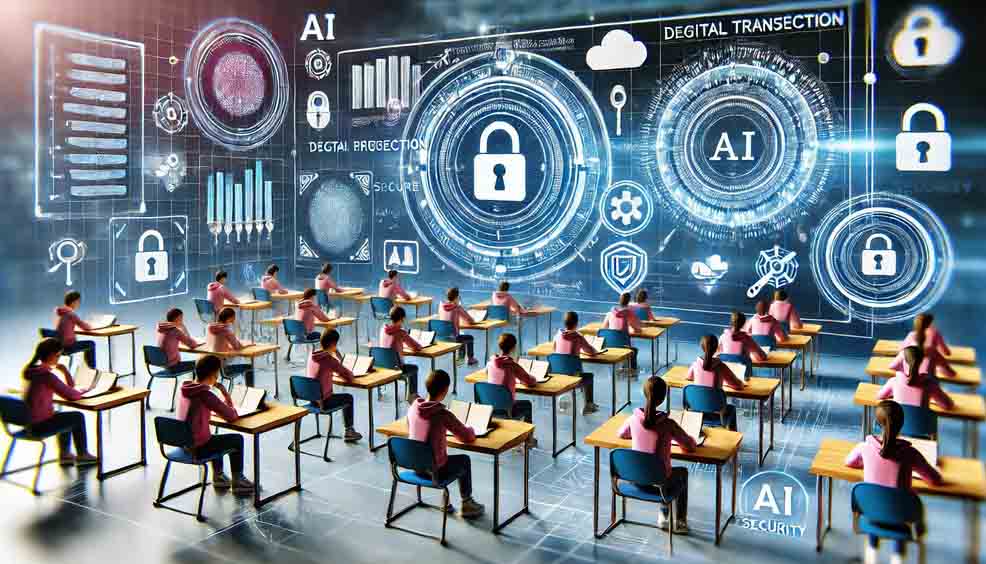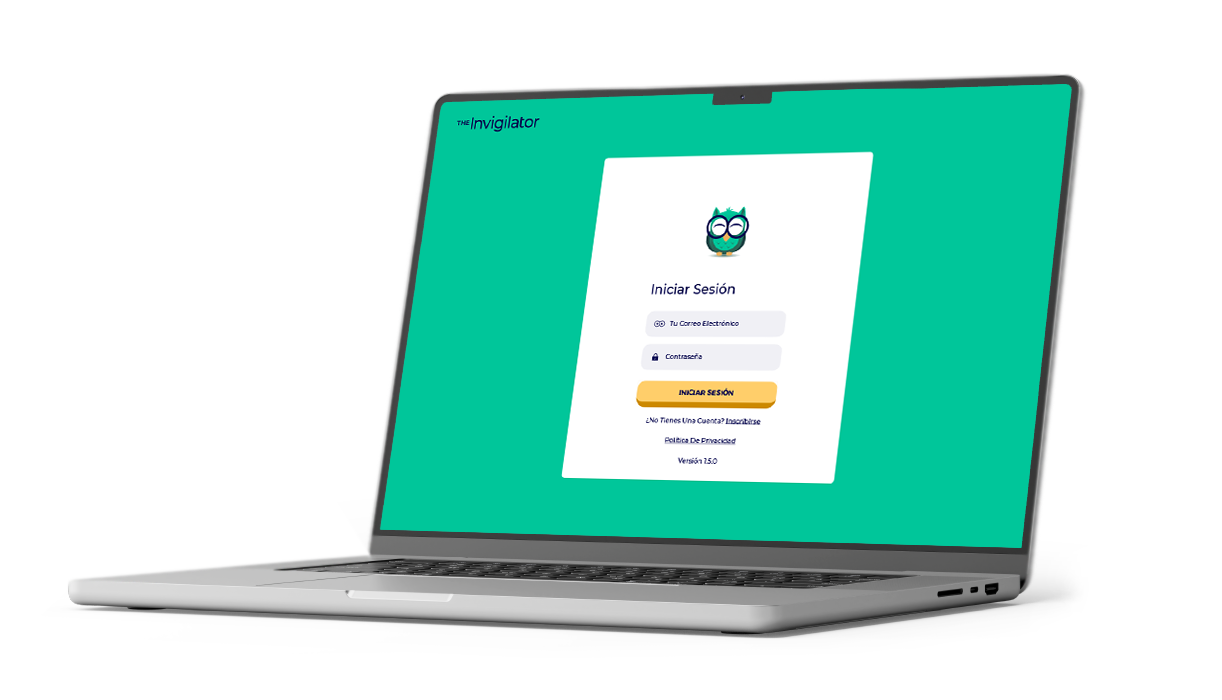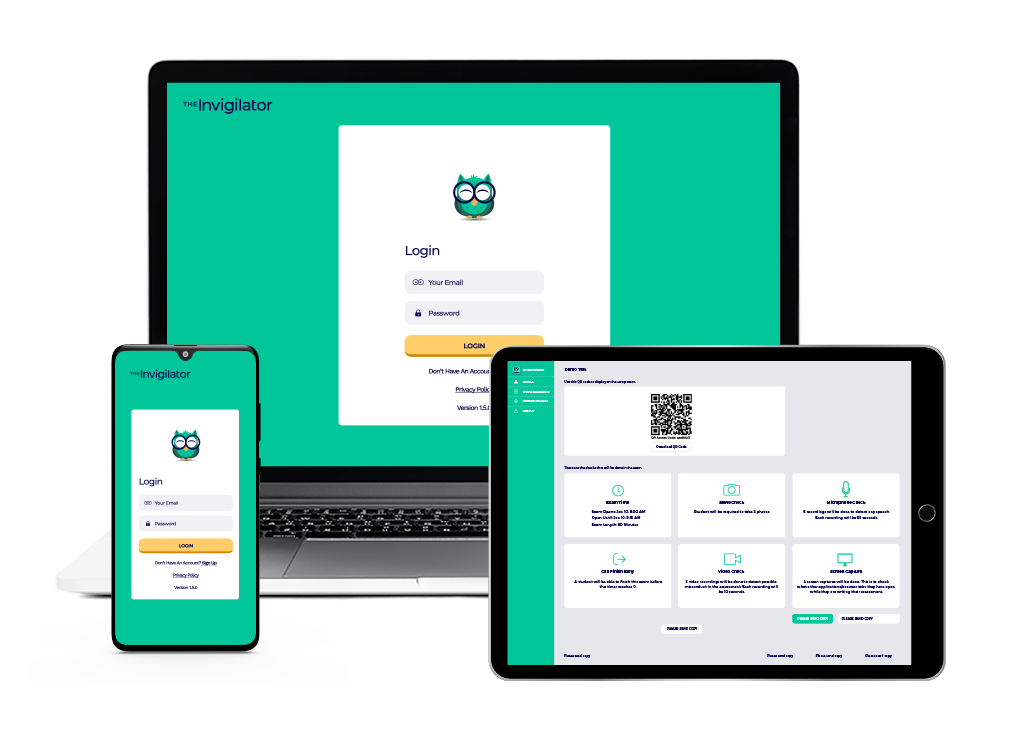The landscape of education has undergone a significant transformation in recent years, driven by rapid advancements in technology. One of the most impactful changes has been the rise of secure online assessments, which have revolutionised the way examinations are conducted. As digital transformation continues to reshape education, secure online exams have become a crucial component of the remote learning experience. In this article, we will explore how digital transformation in education is driving the adoption of secure online assessments, the benefits of these systems, and the role of online proctoring solutions like The Invigilator App in ensuring academic integrity.
1. The Evolution of Education in the Digital Age
The digital age has fundamentally altered every aspect of modern life, and education is no exception. With the rise of digital technologies, traditional methods of teaching and assessment have evolved to meet the demands of a connected world. Educational institutions are now embracing digital transformation to improve access, convenience, and efficiency in the learning process.
One of the most notable aspects of this transformation is the shift from traditional in-person exams to secure online assessments. As more institutions adopt digital platforms, secure online exams are becoming the norm, allowing students to take tests remotely from anywhere in the world.
2. The Rise of Secure Online Assessments
The rise of secure online assessments has been accelerated by the need for flexible and remote learning environments. With the global pandemic and increasing demand for online education, institutions are seeking innovative ways to maintain academic integrity while offering exams remotely. Secure online exams provide a viable solution by combining convenience with advanced security features.
Unlike traditional exams, where students are monitored in physical classrooms, online assessments require robust security measures to prevent cheating and ensure the legitimacy of the exam process. This is where online proctoring solutions come into play, enabling educational institutions to monitor students in real time, even in remote settings.
3. The Benefits of Secure Online Assessments
Flexibility and Accessibility: One of the primary benefits of secure online exams is the flexibility they offer. Students can take exams from the comfort of their homes or any location with internet access. This reduces the need for physical exam centres and allows educational institutions to cater to a broader, global audience.
Cost-Effectiveness: By eliminating the need for physical exam venues, travel, and logistical arrangements, institutions can reduce costs associated with exam administration. Online assessments also save time, as students can complete the exam digitally, and the results can be processed automatically in many cases.
Enhanced Security Measures: Secure online exams are equipped with advanced security features, such as identity verification, screen monitoring, and proctoring tools. These measures ensure that students cannot engage in dishonest practices, protecting the integrity of the exam process.
Scalability: Online assessments are highly scalable, making them ideal for institutions that need to conduct large-scale exams. With digital platforms, hundreds or even thousands of students can take exams simultaneously without the limitations of physical space.
Environmentally Friendly: Online exams are a more sustainable option, as they reduce paper usage and the environmental impact associated with traditional in-person exams. Digital assessments contribute to a greener future in education.
4. The Role of Proctoring Solutions in Secure Online Exams
Proctoring solutions play a vital role in maintaining the integrity of secure online exams. These tools use a combination of artificial intelligence (AI), machine learning, and human oversight to monitor students during assessments, ensuring that they follow the rules and do not engage in any form of cheating.
AI-Powered Monitoring: AI technology has enabled proctoring solutions to become more sophisticated in identifying suspicious behaviour. These systems can analyse students’ movements, facial expressions, and screen activity in real-time, flagging any unusual activities for review by human proctors.
Identity Verification: Proctoring tools often include identity verification features, such as biometric authentication or photo ID checks, to confirm that the student taking the exam is indeed the registered participant.
Data Security: Ensuring data security during online exams is crucial. Proctoring platforms encrypt exam data and monitor data traffic to prevent any breaches or unauthorised access to exam materials.
Live Proctoring: In addition to AI-based monitoring, some platforms offer live proctoring, where human proctors oversee the exam in real-time. This adds an extra layer of security, allowing for immediate intervention if any irregularities are detected.
The Invigilator App is a leading example of an online proctoring solution that incorporates these advanced security features to ensure that online exams are conducted fairly and securely.
5. How Secure Online Assessments Enhance Academic Integrity
Academic integrity is a cornerstone of education, and secure online exams play a critical role in upholding this principle. With the rise of remote learning, educational institutions face the challenge of ensuring that students adhere to ethical standards during exams. Proctoring solutions provide the tools necessary to prevent cheating and maintain fairness.
Preventing Cheating: Secure online exams, supported by proctoring tools, are designed to minimise opportunities for students to cheat. AI technology can detect suspicious activities, such as looking away from the screen or using unauthorised devices, while identity verification ensures that the right person is taking the exam.
Maintaining Trust: By implementing secure online exams, institutions can maintain trust in their academic programmes, knowing that their assessments are conducted in a fair and controlled environment. This trust extends to employers and other stakeholders who rely on the legitimacy of academic credentials.
6. Challenges of Digital Transformation in Education
While digital transformation offers numerous benefits, it also presents challenges that institutions must address to successfully implement secure online assessments.
Technology Access: Not all students have equal access to the technology required for online exams. To address this, institutions must consider providing resources or alternative options for students in regions with limited internet connectivity or access to devices.
Data Privacy Concerns: With the increased use of digital platforms, data privacy is a growing concern. Institutions must ensure that student data is protected and that proctoring tools comply with data protection regulations, such as the General Data Protection Regulation (GDPR).
Training for Faculty and Students: Successful implementation of secure online exams requires training for both faculty and students. Instructors need to understand how to use proctoring tools effectively, while students should be familiar with the exam process and security measures in place.
7. The Future of Secure Online Assessments
As digital transformation in education continues, the future of secure online assessments looks promising. Advancements in AI, machine learning, and data security will further enhance the capabilities of online exam platforms, making them more efficient and reliable.
Adaptive Assessments: AI technology will enable the development of adaptive assessments that adjust to each student’s performance in real-time. This personalised approach can provide a more accurate measure of a student’s knowledge and skills.
Blockchain for Exam Security: Blockchain technology may play a role in ensuring the integrity of online exams by creating tamper-proof records of exam data. This could enhance transparency and trust in the assessment process.
Global Accessibility: As online exams become more widely accepted, institutions will continue to expand their reach to international students. Secure online assessments will enable students from around the world to participate in academic programmes without geographical limitations.
Conclusion
Digital transformation in education is reshaping the way we approach assessments, and secure online exams are at the forefront of this change. By embracing proctoring solutions like The Invigilator App, educational institutions can maintain academic integrity, enhance accessibility, and ensure a secure and fair assessment process. As technology continues to evolve, secure online assessments will become an integral part of the educational landscape, providing a reliable and scalable solution for the future of education.
FAQs and Answers
- What is digital transformation in education?
Digital transformation in education refers to the integration of digital technology, such as online assessments and e-learning tools, to enhance teaching and learning processes. - How do secure online exams work?
Secure online exams use tools like identity verification, AI proctoring, and screen monitoring to prevent cheating and maintain exam integrity in remote settings. - What are the benefits of using online proctoring solutions?
Online proctoring solutions offer real-time monitoring, automated flagging of suspicious behaviour, and secure exam environments for both students and educators. - How do proctoring tools enhance academic integrity?
Proctoring tools ensure that only authorised students complete exams and help detect cheating through AI-based analysis and behavioural monitoring. - Can secure online exams be used for large-scale assessments?
Yes, digital platforms allow thousands of students to take exams simultaneously, making them highly scalable and cost-effective for institutions. - Are secure online exams accessible to all students?
They are designed to be accessible, including features like offline functionality and compatibility with entry-level devices to support equitable learning. - What role does AI play in remote assessments?
AI monitors student behaviour, identifies anomalies, flags suspicious activity, and enhances security during remote online exams. - What are the future trends in secure online assessments?
Upcoming trends include adaptive testing, blockchain-based exam verification, and globally accessible exam systems supported by advanced proctoring tools.









